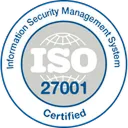Today's supply chains operate as intricate global networks, connecting multinational buyers with suppliers worldwide. This complexity often leads to cash being tied up within these networks, creating challenges for both parties.
Businesses face growing pressure to unlock working capital from their supply chains, especially as inflation makes financing more expensive. Suppliers, in particular, need help with delayed payments and costly short-term funding, leaving them without the cash flow needed to produce goods and materials.
Supply chain financing offers a practical solution, helping both buyers and suppliers access the trapped cash they need.
What is Supply Chain Finance (SCF)?
Supply chain finance (SCF) is a financial solution that enables suppliers to receive early payment on their invoices, freeing up working capital. This process benefits both buyers and suppliers by improving cash flow. Buyers gain extended time to settle payments, while suppliers get faster access to funds, which they can use to support ongoing operations or invest in new projects.
Unlike traditional financing options like invoice factoring, SCF is initiated by the buyer, not the supplier. A key advantage is that the cost of financing is based on the buyer’s credit rating rather than the supplier’s, often resulting in lower costs for the supplier compared to other financial services.
The term "supply chain finance" is sometimes used more broadly to refer to other supplier financing methods, such as dynamic discounting. In this approach, buyers fund early payments to suppliers in exchange for a discount on the invoice. This process is more specifically known as reverse factoring.
How Supply Chain Financing Can Help Secure Your Business’s Future
Businesses today face mounting challenges, from geopolitical tensions and stricter regulations to rising inflation-related costs and frequent supply chain disruptions. These factors have created a more volatile economic environment, making it harder for companies to maintain financial stability.
In fact, many CFOs view this uncertainty as a significant obstacle. According to Coupa’s 2024 Strategic CFO report, 90% of CFOs worry their organizations might fall short of their revenue targets. Supply chain financing offers a potential solution to navigate these challenges and strengthen financial resilience.
Supply chain financing offers a flexible and cost-effective way to manage liquidity while driving growth. It’s especially beneficial for businesses with steady product portfolios, where demand is unlikely to decline. By using a supply chain finance program, these businesses can extend payment terms with minimal risk, freeing up additional capital to invest in other areas of growth.
5 Ways Supplier Finance Programs Can Strengthen Your Supply Chain
1. Better Cash Flow Management
Supply chain finance helps businesses improve cash flow by enabling early access to funds tied up in invoices. This provides the liquidity needed to cover expenses, invest in growth, and streamline operations. For instance, if a major customer has a 60-day payment term, supply chain finance allows you to receive payment sooner, helping you avoid potential cash flow issues and maintain financial stability.
2. Lowered Financial Risk
Supply chain finance can significantly reduce risk by leveraging your supply chain as collateral for financing. This improves your creditworthiness and provides greater assurance of timely payments from customers and suppliers. For example, as a supplier, if your customer has secured financing, you’re more likely to be paid on time since the financing provider ensures the invoice is settled promptly.
3. Enhanced Working Capital
Supply chain finance allows you to boost your working capital, giving you more cash to reinvest in your business. This additional liquidity can help you seize new opportunities and accelerate growth. For instance, by receiving early payment on invoices, you can allocate funds toward launching new products or expanding into new markets.
4. Stronger Supplier Relationships
Supply chain finance can help foster stronger relationships with your suppliers by improving their cash flow through early payments. This not only supports their financial stability but can also lead to benefits like better pricing, improved terms, and more dependable supply chains. For example, as a buyer, offering early payments might encourage suppliers to provide discounts or more flexible contract terms, enhancing mutual trust and collaboration.
5. Greater Financial Flexibility
Supply chain finance offers your business increased financial flexibility by providing more cash on hand and minimizing risk. This flexibility allows you to make strategic decisions that support long-term growth, such as developing new products or entering new markets. For instance, with improved cash flow, you could invest in research and development to innovate or fund expansion into untapped markets, positioning your business for future success.
Real World Example
Let’s consider a scenario involving a retailer, BrightMart, and its supplier, FreshProduce Co.
BrightMart regularly buys perishable goods from FreshProduce Co., which operates on tight cash flow due to the high costs of growing and harvesting fresh produce. Normally, BrightMart has a 60-day payment term with FreshProduce, meaning the supplier has to wait two months to get paid for their shipments. This delay often leaves FreshProduce struggling to cover operational costs or invest in better equipment.
Using Quickly’s platform, BrightMart sets up a supply chain finance program. With this program, FreshProduce can receive early payment for its invoices—say within 10 days—in exchange for a small discount on the invoice value. The financing is based on BrightMart’s credit rating, ensuring that the cost of accessing funds remains low for FreshProduce.
This arrangement benefits both parties:
- FreshProduce Co. gets faster access to the cash it needs, helping it manage costs, plan future production, and grow its operations without taking on expensive short-term loans.
- BrightMart strengthens its relationship with FreshProduce by improving its supplier’s cash flow, which can result in better terms, reliable deliveries, and potentially even discounts for BrightMart in the future.
Quickly’s role ensures the process is seamless, enabling BrightMart to maintain its existing payment process while offering valuable flexibility to FreshProduce. This strengthens the entire supply chain by ensuring financial stability and collaboration.
Conclusion
Supply chain finance benefits all parties, including the buyer, bank, and supplier, by strengthening relationships and ensuring suppliers are paid promptly. This buyer-driven financing solution, often called "reverse factoring," enhances working capital and helps secure the long-term stability of suppliers.
“It took minutes to set up. Our contractors love the freedom...”
Meshal Alshammari, CEO @ Enviro Painting






